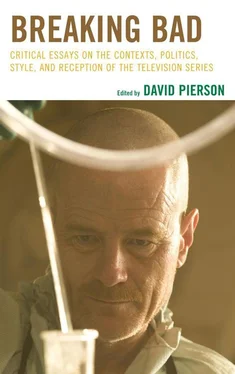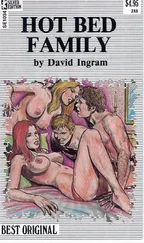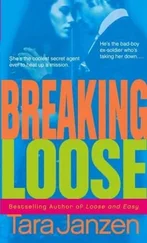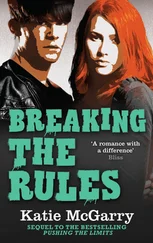Under neoliberal subjectivity, labor is not perceived as an abstract element purchased on the market and attached to the production of a specific commodity, but rather as “human capital” that is inextricably tied to the individual worker. For neoliberals, labor is a subjective choice among many other activities for people to choose from in their daily lives. In choosing labor, a person is conceived as an entrepreneur who invests his human capital to produce an income to finance his interest in other activities for his personal development and pleasure. Lemke refers to neo-liberalism’s focus on the caring of the self and producing a surplus-value of capital as “entrepreneurism” (197-99) Neo-liberalism seeks to construct practical subjects whose moral quality consists of their ability to rationally assess the costs and benefits of any particular action among alternative acts. Neo-liberalism promotes individuals to conceive of themselves as entrepreneurs in every facet of their lives (Lemke). Within this scenario, crime is just another activity among many to choose from and a criminal entrepreneur can be seen as a person who invests his human capital to produce a surplus-value of capital to partake in his or her personal interests.
The criminal serves as an imaginary figure for revenge fantasies in neo-liberalism. Jodi Dean (2008) theorizes that the criminal stands in for the unpredictable risk and intolerable loss within neo-liberalism’s “free trade fantasy” of the market as a place where “everyone wins.” Because the criminal is less a person than an image of horrifying loss and deprivation, he must be punished and society must be protected from his presence. I do, however, argue that the neoliberal criminal serves a much more complicated role than representing the horror of losing in the market (Dean). The criminal entrepreneur who builds a criminal empire from the ground up serves as a fantasy figure of American capitalism. The classic Hollywood gangster of the 1930s exemplifies a twisted version of the traditional Horatio Alger American success story. This character is traditionally a newly landed immigrant from “Old Europe” who comes to America to socially advance himself through hard work, perseverance, love of family, and a willingness to break the law and profit from areas outside the legitimate bounds of society. Hollywood’s movie gangsters are “neoliberal America’s poster-children” because they express the American success myth of self-improvement with minimal state involvement and liberated from the moral prudence and self-restraints associated with American Puritanism (McCalmont). The gangster readily takes what he wants from others, whether through extortion or hostile takeover, exemplifies capital accumulation in its most primitive form. The cinematic gangster reminds us that self-interest and avarice reside in the heart of modern capitalism.
After Walt learns that he has terminal cancer, he decides to become a criminal drug producer by entering the lucrative meth market. Unlike his low-paying teaching position, Walt is able to gainfully profit directly from his chemistry knowledge by producing high quality, potent crystal meth, which becomes the most sought after product in the American Southwest. As a successful gangster, Walt exemplifies the tenets of neoliberal entrepreneurism. He carefully weighs the risks and benefits of all of his strategic business actions. For instance, it is Walt who convinces Jesse that it is worth the physical risks of doing business with the ruthless, vicious Tuco (Raymond Cruz) in order to distribute their product in bulk, rather than selling small bags on the street. And, although Tuco and his men physically assault Jesse, Walt fearlessly demands that Tuco pay for the meth he stole from Jesse plus fifteen thousand for Jesse’s pain and suffering. Also, when one of Jesse’s street dealers is robbed by a drug-addicted couple, it is Walt who tells him (Jesse) that he must exact street justice for the couple’s crime. Walt bluntly makes his point by handing Jesse a gun and telling him to handle it. Walt understands the brutal code of the streets that if they do not punish people who steal from them, then they will be easy targets for every drug addict and felon in Albuquerque.
In the illegal drug economy, dominating a market means controlling territory through physical violence and intimidation. Law enforcement agencies, whether local or federal, function in a pure adversarial role in that they do not want to regulate the illegal market, they want to eliminate it. They want to eradicate it because of the implied moral and social threat the market represents to the dominant capitalist market. However, the illegal drug market and how it is operates has more in common with the vicious nature of modern capitalism than any other system. In a sense, Breaking Bad ’s criminal market with its constantly changing market territories and wealth, its winner-take-all ethos, and unwanted government intrusion (law enforcement agencies) into its operations represents the brutalities best associated with the global, neoliberal marketplace.
As a successful entrepreneur, Walt’s primary concern is maximizing his profits and protecting them from the prying eyes of government officials. Of course, he also has the added incentive that if his massive income is detected by the authorities, then it may lead to an investigation that will reveal his criminal activities. When one of Jesse’s street dealers is arrested, Walt meets Saul Goodman (Bob Odenkirk), a local, sleazy criminal attorney, who, referencing The Godfather , offers to be Tom Hagen to Walt’s Vito Corleone. [1] In The Godfather (1972), Tom Hagen (Robert Duvall), the Don’s adopted son, serves as the consigliere or advisor to Don Vito Corleone (Marlon Brando), the head of the Corleone crime family. In Breaking Bad , Saul offers to be Walt’s personal advisor and counselor for his meth production and distribution business.
Saul becomes a business partner and sets up Walt and Jesse with a lucrative transaction with Gustavo “Gus” Fring (Giancarlo Esposito), the owner of a chain of fast food chicken restaurants called Los Pollos, to produce thirty eight pounds of meth for $1.2 million. Saul shows Walt the mechanics of money laundering to provide the appearance that Walt’s money derives from legitimate sources. Once Skyler discovers Walt’s secret life, she reveals her strong business acumen for hiding their illegal assets by buying a local car wash as a vehicle to launder their monies. Neo-liberalism’s liberalization and deregulation of banking and financial laws have led to the increase of money laundering, especially in Latin American countries. While money laundering is an illegal activity, it does share affinities with rapid monetary exchanges and established tax haven countries, which have become common practices of global corporations in neoliberal societies.
The neoliberal entrepreneur par excellence in Breaking Bad is the enigmatic Gus Fring. Gus’s public image is one of a benevolent, local businessman and community leader. He serves as the main supporter of a local charity race and never hesitates to give his time or money for a worthy social cause. In essence, Gus assumes the appearance of a compassionate businessman, a character type best lauded by welfare era liberalism. However, beneath the surface, lies the cold heart and rational, calculating head of a neoliberal criminal entrepreneur who uses his fleet of Los Pollos trucks to distribute meth across the southwest. Gus runs a multi-million dollar drug empire that has enough capital to build Walt a state-of-the-art manufacturing lab in the sub-level of a large commercial dry cleaning plant. As Hank later learns, Gus’s operation is global in scope because the dry cleaning plant is a corporate subsidiary of a German conglomerate. When the circumstances call for it, Gus is capable and willing to commit horrendous acts of physical violence to preserve and strengthen his criminal empire. Gus, in “Box Cutter” (7/17/11), coolly puts on a hazmat suit and severs the carotid arteries of one of men who bleeds to death in front of a tied-up Walt and Jesse. Without fanfare, he coldly sacrifices one of his best men to set an example for Walt and Jesse of the fate that awaits them if they do not follow his orders.
Читать дальше












